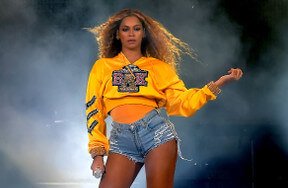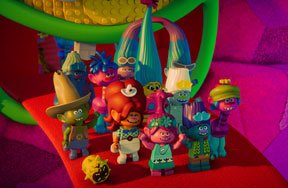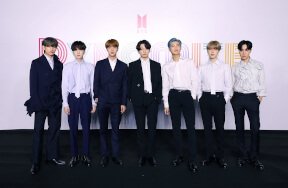7 Things Every K-Pop Fan Should Know
What you need to know from comebacks to fanchants and more
May 14, 2019K-pop music is taking center stage across the world right now and fans everywhere are obsessed with everything Hallyu -- South Korean culture. From boy-bands like BTS and girl-bands like BLACKPINK, these singers, dancers, rappers, and all-around idols are the hottest thing on all the charts from YouTube music videos to music countdowns and even top Instagram celebrities. But appreciating the music is only the beginning. Once you find a group you like, you begin to dive deep into the whole South Korean pop music language and culture. Here is a guide to how to go from liking the music to appreciating all things K-pop in one easy lesson!
 BLACKPINK made K-pop history performing at CoachellaCourtesy of Getty Images
BLACKPINK made K-pop history performing at CoachellaCourtesy of Getty Images
How K-pop groups are formed
In South Korea, pop stars are made, not born. There are a few major companies that set up auditions around the country and sometimes across the South Pacific and as far away as Australia where young teens around 13 and 14 years old try out to become the next K-pop star. The odds are stacked against the young hopefuls. Sometimes as few as one in a thousand get through the auditions. But the winners are invited to join the companies as trainees. Trainees sign on with the companies as their agent. They live in a dorm with other K-pop hopefuls and study up to 14 hours a day, taking lessons in singing, dancing, rapping, music performance, and working out, then competing with each other to see who gets to stay on and who has to go home. They also take foreign language lessons and study whatever the company thinks they will need to know to become stars.
The members of BLACKPINK recalled their trainee days with a mixture of fondness and wonder when asked about in on various talk shows when they came to the U.S. in 2019 for their world tour.
BLACKPINK Interview with "Zach Sang Show"
“We all dropped everything that we were doing. Our whole life changed overnight. They put us into these groups of girls like a survival thing every month. And some people just go home after a month. Some people go home after three years. To see some of the girls I trained with go home made me more motivated. We all had one dream and it wasn’t easy to just stay there. I didn’t want to go home. That was the only thing that was on my mind.” -- Jennie, BLACKPINK, in an interview with Zach Sang
Group Roles
Because pop groups in South Korea are put together on purpose by companies, each member is assigned a role -- not just in terms of what they do musically, but also in terms of how they perform and how they appear to the public. Some groups have only three or four members, but many groups are so big, they’re basically a dance squad: Seventeen and Super Junior -- both K-pop boy bands -- have had thirteen members each at various points; Girls Generation originally had nine members and has 8 in 2019. Because these groups can get quite large and members sing, dance, and rap but rarely play different instruments, it helps for the company to assign specific roles to the members as if they are their jobs. Here are some of the roles.
Visual: the Visual of the group is the one the company puts forward as the most handsome or beautiful. Jin in BTS, Mark in GOT7, Tzuyu in the 9-person female group Twice, and Jisoo in BLACKPINK. The visual is the member who often gets featured on variety shows, in interviews, and in commercials first.
Center: The center is the group member who is often front and center on stage and in photos. Even if they aren’t considered the most attractive, best dancer, best singer, or best rapper, they have a stage presence the company wants to promote as the “face” of the group.
Leader: The Leader role is often assigned to the spokesperson of the group. The leader usually has the most training and is the most comfortable in front of the camera. The leader usually speaks first in interviews when the language is one they are comfortable with. Rap Monster (RM) in BTS is the leader because not only is he hella smart and is comfortable in front of the camera, he’s also fluent in the most languages in the group.
Main Vocal / Lead Vocal: The Main Vocal has the best voice of the group and the Lead Vocal has the second-best singing voice.
Vocalists: The Vocalists sing back-up and get a few lines here and there in songs, but aren’t usually featured. Their biggest talents usually lie elsewhere!
Main Rapper / Lead Rapper: Just like with the Vocalist roles, The Main is the #1 rapper and the Lead is the second rapper down the line.
Main Dancer / Lead Dancer: You guessed it. Main is #1 when it comes to dancing and the Lead takes a close second!
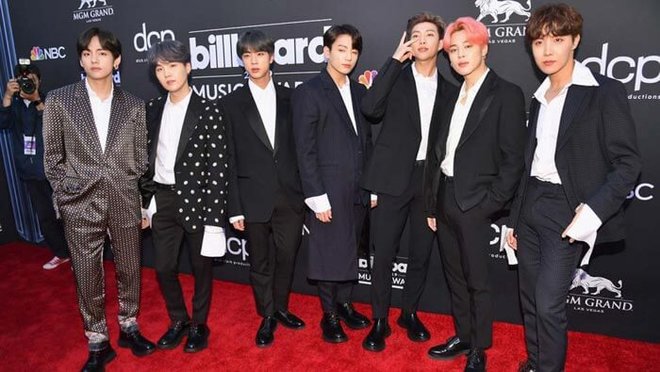 BTS at the Billboard Music Awards
BTS at the Billboard Music Awards
Each member of BTS has a role. Jin is the group’s Hyung (eldest). RM is the Leader and main rapper. Jungkook is the Maknae. Suga and J-Hope are rappers. Jimin is a dancer known for his “chocolate abs”. V is the 4D vocalist of the group.
Fanchants
At most Western concerts -- rock, pop, country, R&B, rap, etc. -- the sounds of screaming fans becomes a dull roar. At K-pop concerts, fans organize fanchants that they sing before the group goes onstage or during the songs to show their support and participate in the show along with their favorite idols. The basic fanchant is a rhythmic chant of the group members’ first names in order from oldest (unni) to youngest (maknae) and include a shout-out of the band’s name.
The BTS basic fanchant is:
“Kim Namjoon! Kim Seokjin! Min Yoongi! Jung Hoseok! Park Jimin! Kim Taehyung! Jeon Jungkook! BTS!”
BLACKPINK's basic fanchant is:
BLACKPINK! Kim Jisoo! Kim Jennie! Park Chaeyoung! Lalisa! BLACKPINK BLINK!”
BLACKPINK's fans include BLINK, the name their fans go by, at the end. BLACKPINK's fans are called BLINKS as a combo of the words Black and Pink.
Becoming an official fan
In Korean fandom, there are two ways to support your favorite group: Fanclubs and Fancafes. A Fancafe is free, while a Fanclub requires membership. Joining an official Fanclub is often impossible to do unless you live in South Korea or at least understand the language. It’s also only open at certain times and to a limited number of people. In addition, the perks usually only extend to attending local events and having all your cool swag shipped within South Korea. But you can still be an unofficial fan by loving the group, following them on social media, watching their music videos, going to their concerts and, of course, listening to their music!
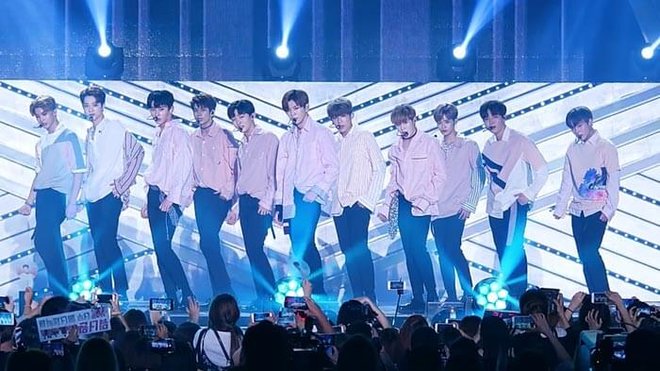 The 11-member group Wanna One's fans are called Wannables.Courtesy of Wikipedia
The 11-member group Wanna One's fans are called Wannables.Courtesy of Wikipedia
K-pop terms
There’s a whole language in the k-pop world that fans refer to regularly when talking about their favorite groups. Here are some of the terms defined:
- 4D: The term 4D is Korean slang used to describe someone who has a weird, unique, fun, or strong personality. The 4D members often think outside the box, beat to their own drum, or just get silly in front of the camera as if they don’t care who is watching.
- Aegyo: A cute expression, like winking, forming a hand heart, or blowing a kiss.
- All-Kill: Hitting #1 on all 8 Korean music charts: Melon, MNET, Bugs, olleh, Soribada, Genie, Naver and Monkey 3 Charts.
- Beagle: A Beagle is a group member who acts like an energetic puppy dog. They are often loud, mischievous and can't sit still, even during interviews.
- Bagel: A baby face with a glamorous, sexy body.
- Bias: Your absolute favorite celebrity whom you support no matter what.
- Bias-wrecker: Someone who makes you question who your favorite is. Every now and then they do something so Aegyo, 4D, Bagel, or awesome that they challenge your ideas about where your true bias lies.
- Chocolate Abs: Abs that are so strongly defined, their lines look like the blocks on a bar of chocolate.
- Comeback: The first release of a new title track, album, or single.
- Daebak: Big success.
- Dongsaeng: Friend who is younger than you. It’s like calling someone your “little buddy”.
- Hallyu: A love of all things Korean including food, TV, language, celebrities, and K-pop.
- Hyung or Oppa: “Older brother.” A male friend who is not actually related to you but is older than you are. A boy would call his male friend who is older his Hyung, while a girl would call him her Oppa. Girls can also call their male crush their Oppa.
- Unni or Noona: “Older sister.” It’s what you call a female friend who isn’t related to you but is older than you are.
- Jjang: The best! When you’re talking about your bias or favorite band, give it two thumbs up and say “Jjang!”
- Maknae: Youngest in a group. They are often treated like a younger sibling by the other group members.
- Sasaeng: Obsessive fans who do crazy things to get close to their idols, even break laws!
- Selka: The same word as “selfie” in Korean. It’s a combination of the words “self” and “camera”.
How to learn more about all things Hallyu
Watch the music videos -- called MVs -- on Youtube to get started. Each K-pop music video is a huge production with multiple costume changes, several sets, and a story line that’s filled with symbols. You can also follow your favorite group on Instagram and on Youtube so you don’t miss a single update.
Netflix has really embraced Hallyu culture as well. One show in particular -- the K-Drama Part-Time Idol -- ran for only five 45-minute episodes, but with a 99% approval rating and a cast that features real-life K-pop stars as trainee hopefuls, it’s not only a good intro into the world of South Korean culture, it’s also a fun way to learn more about the scene behind the scenes. If Part-Time Idol whets your appetite to learn more, check out all of the shows on Netflix from South Korea.
 Netflix has a whole category of Korean TV shows from kids' cartoons to dramas and reality shows.Courtesy of Netflix
Netflix has a whole category of Korean TV shows from kids' cartoons to dramas and reality shows.Courtesy of Netflix
Have Your Say
Which k-pop group is your favorite? Who is your k-pop bias? If you were in a K-pop band, what would your role be? Share your thoughts in the comments below!






























